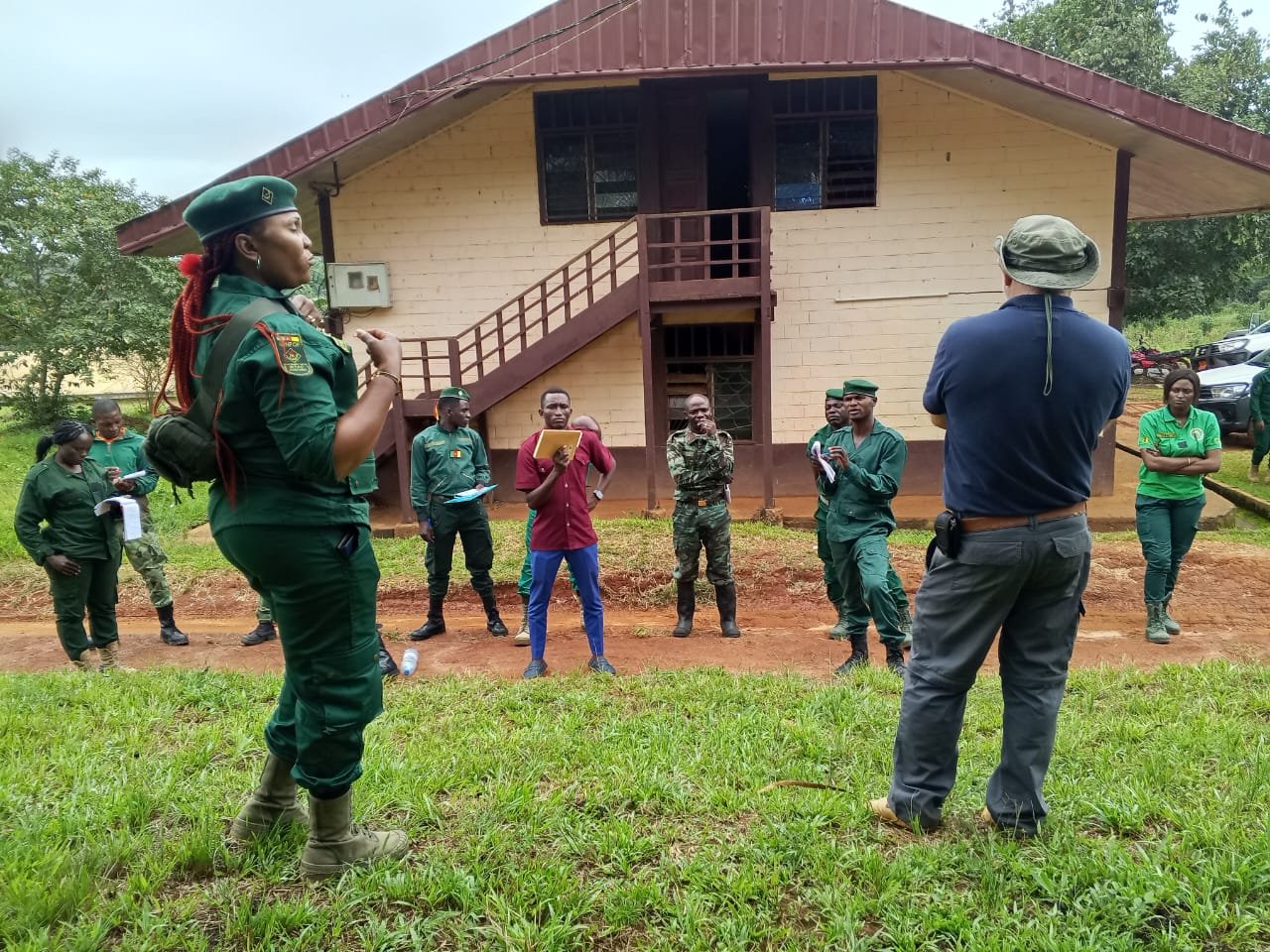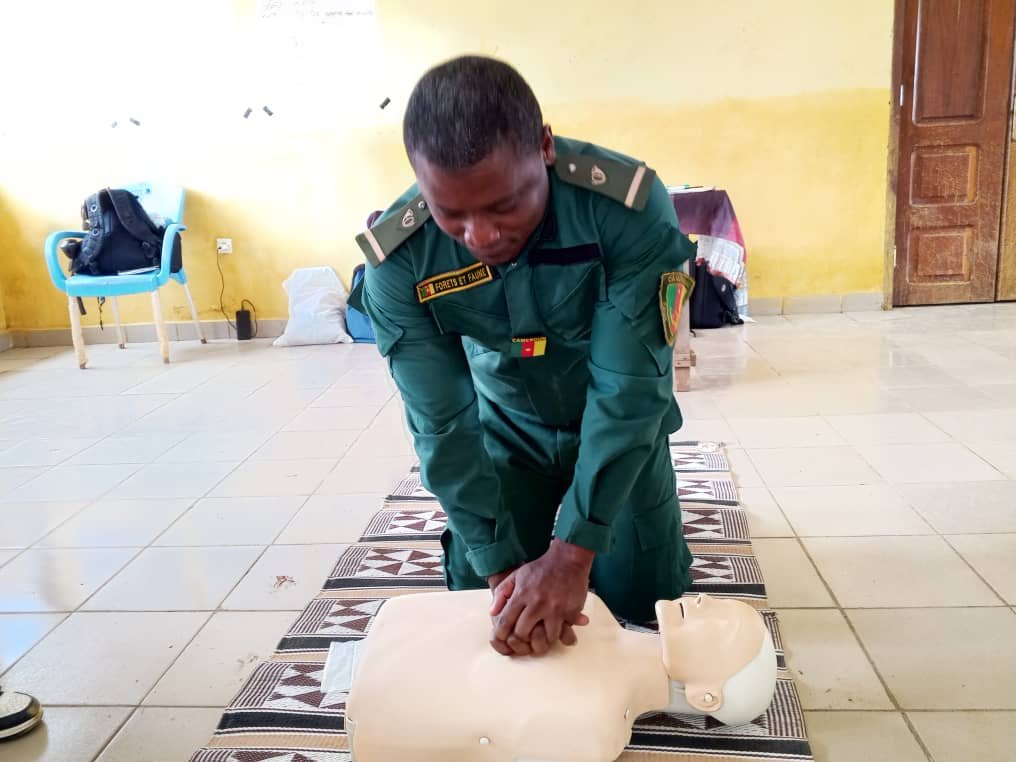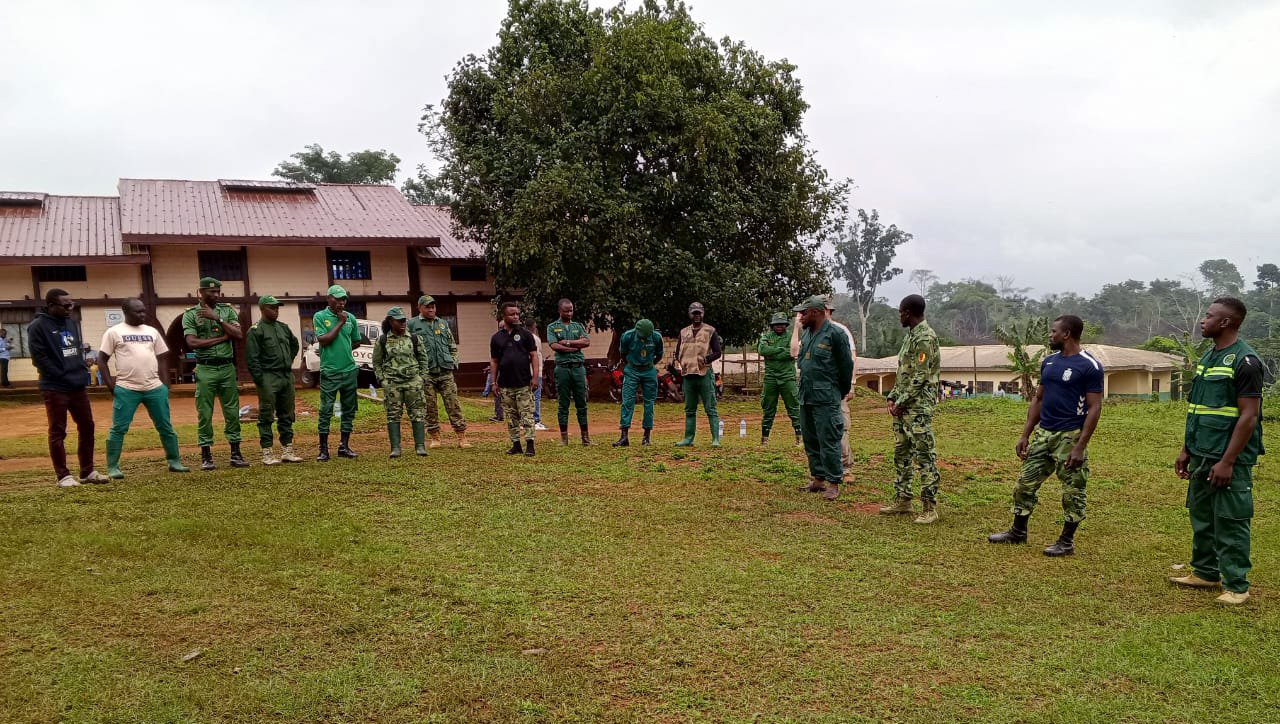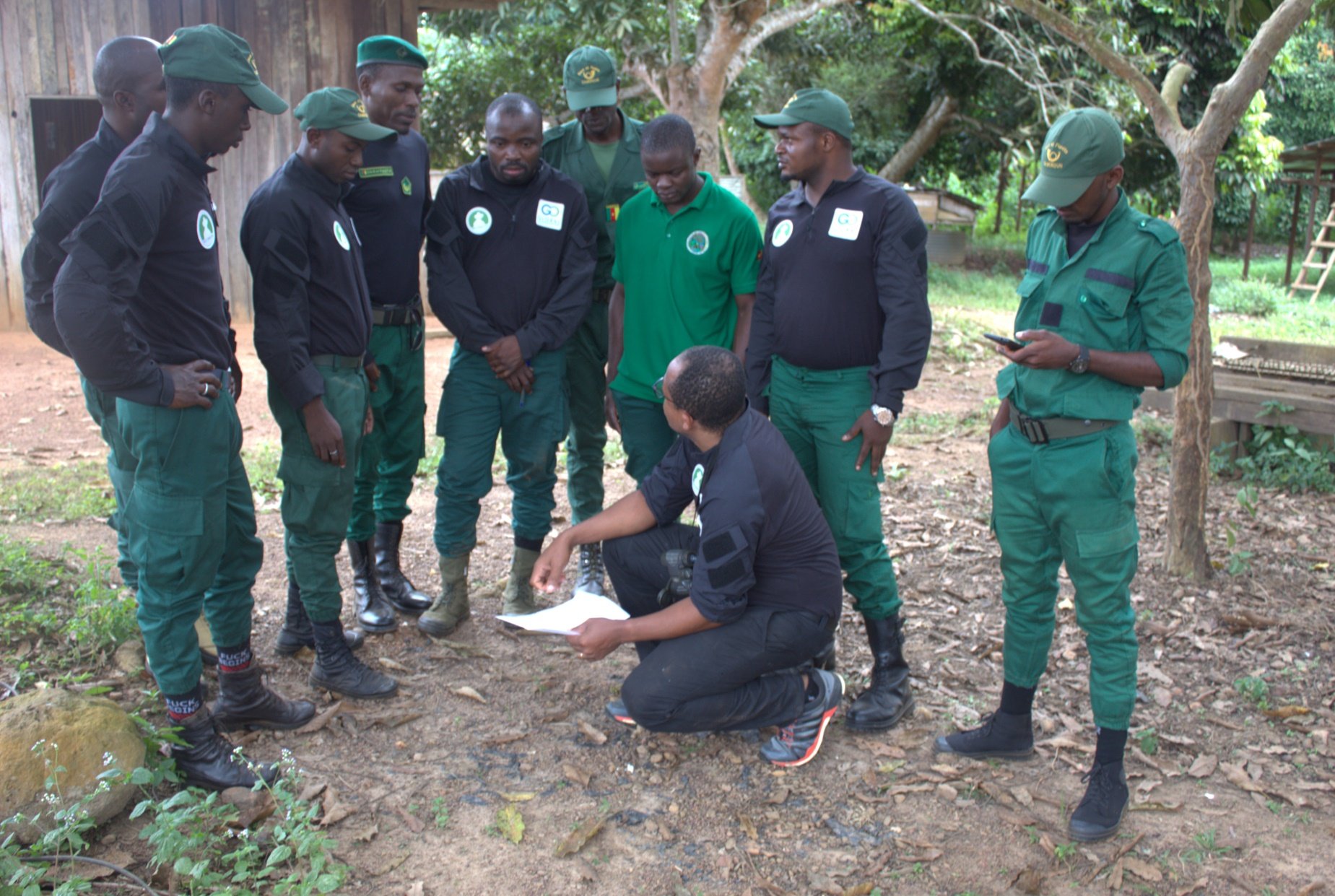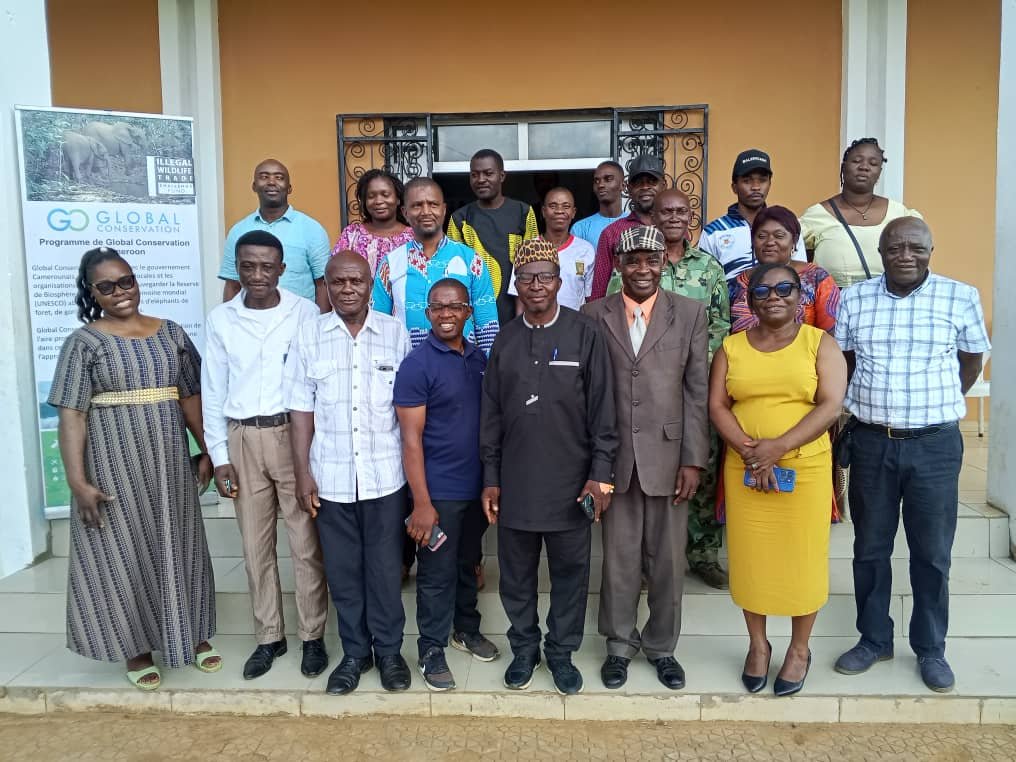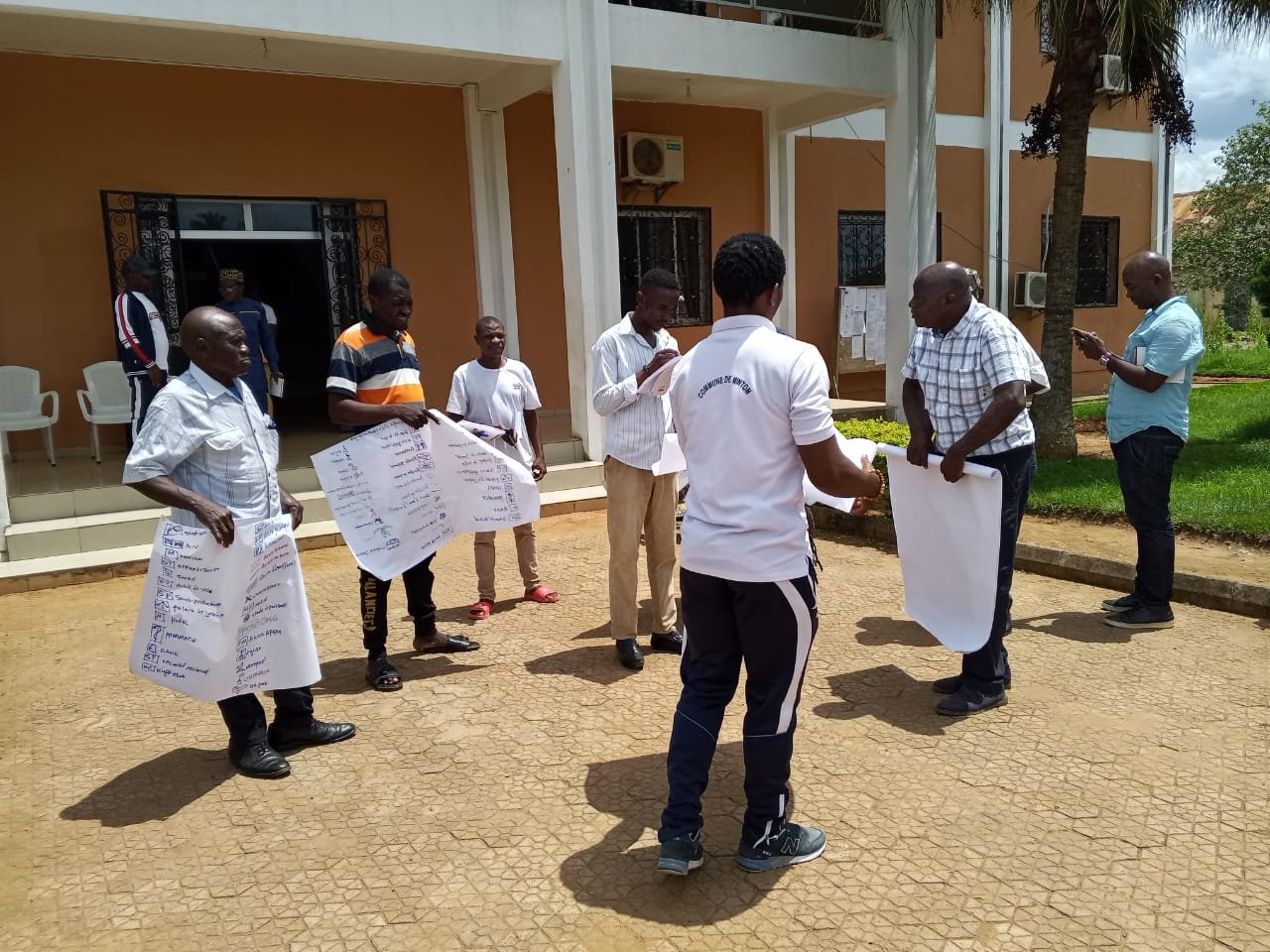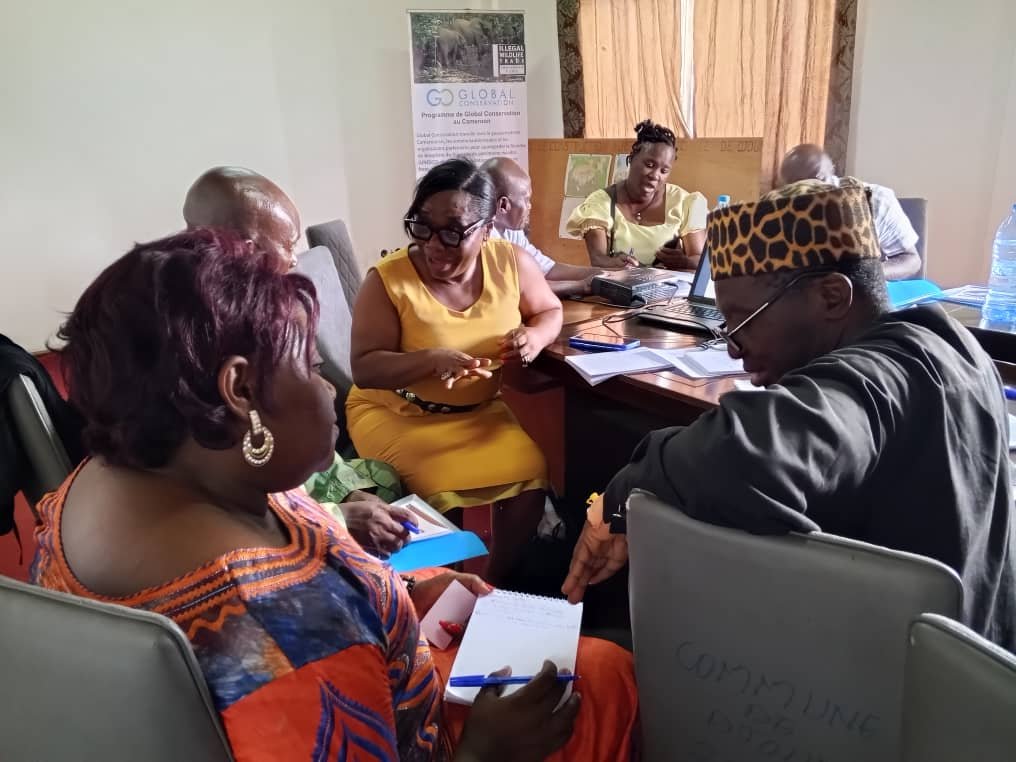2025 Project Update: Enhancing Law Enforcement Responses to Combat International Wildlife Trafficking in Cameroon
Tactical Training for Dja and Ngoyla Reserve Rangers in Lomie.
First Aid Training for Dja and Ngoyla Reserve Rangers.
Frontline Ranger Training in Dja and Ngoyla Reserves
In partnership with the Zoological Society of London (ZSL), two comprehensive five-day training sessions were conducted in Lomie for rangers from the Dja and Ngoyla Reserves. These sessions aimed to strengthen both the operational and strategic capabilities of frontline personnel involved in anti-poaching and wildlife protection efforts.
The training covered a broad range of topics, including:
Human rights protection
Current regional and global dynamics of illegal wildlife trade
Intelligence gathering, analysis, and dissemination
Patrol planning and field safety
Conflict de-escalation and suspect search procedures
Crime scene management and basic first aid
Effective use of field notebooks and documentation techniques
Tactical Training for Dja and Ngoyla Reserve Rangers in Lomie.
By combining technical instruction with practical exercises, the training significantly enhanced the rangers’ ability to detect, respond to, and document wildlife crimes, contributing to improved law enforcement and conservation outcomes in the TRIDOM landscape.
Training Airport Customs, Police, Gendarmes and Forest Officers on IWT product identification and concealment methods as well as the forest and wildlife new law.
IWT Training for Cameroon International Airport Law Enforcement Officers
With support from the Illegal Wildlife Trade (IWT) initiative, a two-day training workshop was held from April 28–29, 2025, at Hotel Tou’ngou in Yaoundé. The workshop aimed to address critical gaps in the fight against wildlife crime by strengthening operational and strategic capacities of frontline personnel.
Organized for key stakeholders operating at Yaoundé-Nsimalen International Airport—including CAAT customs officers, airport police and gendarmerie, and representatives from the Ministry of Forestry and Wildlife—the training focused on improving detection, interception, and management of wildlife trafficking cases, while also reinforcing inter-agency coordination for a more effective collective response.
This training is particularly important, as airports serve as major transit points for the illegal wildlife trade. Enhancing the capacity of airport personnel is essential for the early detection and prevention of trafficking, disrupting criminal networks, and contributing to both national and international conservation efforts. Strengthened inter-institutional coordination also ensures more consistent enforcement and timely response to wildlife crimes.
Ongoing Mentorship and Patrol Capacity Building in the Dja and Ngoyla (SMART & EarthRanger)
The mentorship program is actively progressing, with GC continuing to strengthen the capacity of the Dja and Ngoyla Conservation Services. As part of this effort, a refresher and advanced technical training on the use of the Spatial Monitoring and Reporting Tool (SMART) was conducted from November 27–30, 2024. This training placed particular emphasis on data querying, analysis, and reporting, targeting both new and existing staff.
GC has also worked to standardize the SMART data and configurable models across the TRIDOM landscape and has configured the Earthranger for the TRIDOM landscape. To encourage Transboundary collaboration and cross-border learning, three rangers from Gabon’s National Parks Agency (ANPN), working in Minkebe, were invited to participate and share their experiences with rangers from Dja and Ngoyla Reserves.
The Village Savings and Loan Association (VSLA).
Community Surveillance Network (CSN): Expansion of Community Engagement Scope
The scope of GC’s community engagement efforts has expanded, with eight additional communities identified during the last quarter. These communities—Adjap, Yen, Ando’o, Mbouma Doum, Nkolkoumou, Nkolemboula, and Bi—were selected following preliminary field visits conducted from January 16 to 23, 2025. These visits aimed to assess local perceptions, concerns, and interests related to forest resources, wildlife, conservation regulations, and poaching activities. The selection of these communities was based on their strategic locations along known wildlife trafficking routes, as well as specific social and geographical characteristics that influence their engagement potential.
GC’s entry-point strategy involves introducing Village Savings and Loan Associations (VSLAs) to bring together individuals with shared interests into structured groups. These groups will serve as key contact points for future engagement in Non-Timber Forest Products (NTFP) and ecotourism development activities that the IWT project is supporting. Through this approach, GC aims to increase community awareness of the benefits of conservation and reduce the risk of local support for poachers accessing forest areas.
In the course of implementing the project, GC law enforcement officers and community engagement officers are identifying trusted individuals within each group to act as informants and participate in a community-based information-sharing network. These individuals are trained and provided with smartphones and mobile web-based platforms to support evidence collection and real-time information sharing. All tools and methods are designed and discussed with each community to ensure they are adapted to local capacities, needs, and preferences.
VSLA Community Farm for training and practice.
Building a Conservation Economy:
Addressing Community Drivers of Illegal Wildlife Trade through Sustainable Livelihoods
While many initiatives to combat Illegal Wildlife Trade (IWT) in Cameroon have focused primarily on strengthening law enforcement, they often overlook one of the root causes of community involvement in poaching: the lack of sustainable livelihood opportunities. To address this gap and mitigate the economic impact of enhanced law enforcement on local poachers, the project is introducing two alternative, sustainable livelihood options: the development of Non-Timber Forest Product (NTFP) markets and the establishment of a community-based ecotourism sector.
NTFP workshop to discuss NTFP processing, storage, transportation, and market access.
Non-Timber Forest Product (NTFP) Market Development
NTFP markets offer a practical and culturally appropriate path for communities to transition toward sustainable income sources. Before this project, NTFP commercialization still faced numerous challenges such as limited access to markets, inability to negotiate fair prices, weak bargaining power, poor transport infrastructure, and underdeveloped cooperatives and governance mechanisms.
To build trust and ensure local buy-in, community engagement has been a core element of project implementation. So far, the project team has conducted two 3-day workshops to understand more about NTFP processing, storage, transportation, and market access, involving producers, buyers, and exporters so as to find appropriate solutions.
Ecotourism experts: Chief, community rep, council tourism authorities.
Ecotourism attraction mapping.
Laying the Foundation for a Community Ecotourism Market
In contrast to NTFPs, a formal ecotourism market is currently nonexistent in the region. However, local communities have shown strong interest in participating, provided they receive the necessary training and support. As a result, the project is collaborating with local tourism councils to map potential sustainable tourism attractions and assess available infrastructure. In the next phase, additional workshops will focus on securing community participation through signed agreements and training community members across all eight target communities in a wide range of ecotourism skills.
Ecotourism attraction mapping methodology discussion.

